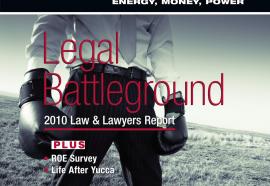Security and the States
The regulator’s role in promoting cybersecurity for the smart grid.
State commissions can select from a toolkit of regulatory approaches to promote desired utility cybersecurity behavior. One approach is to allow the industry to selfregulate, and another approach is to leave the job to the federal government. But sofar, neither the industry nor the federal government have developed and implemented adequate standards for securing the smart grid. States can play a constructive role—albeit perhaps not in the form of traditional regulation.










